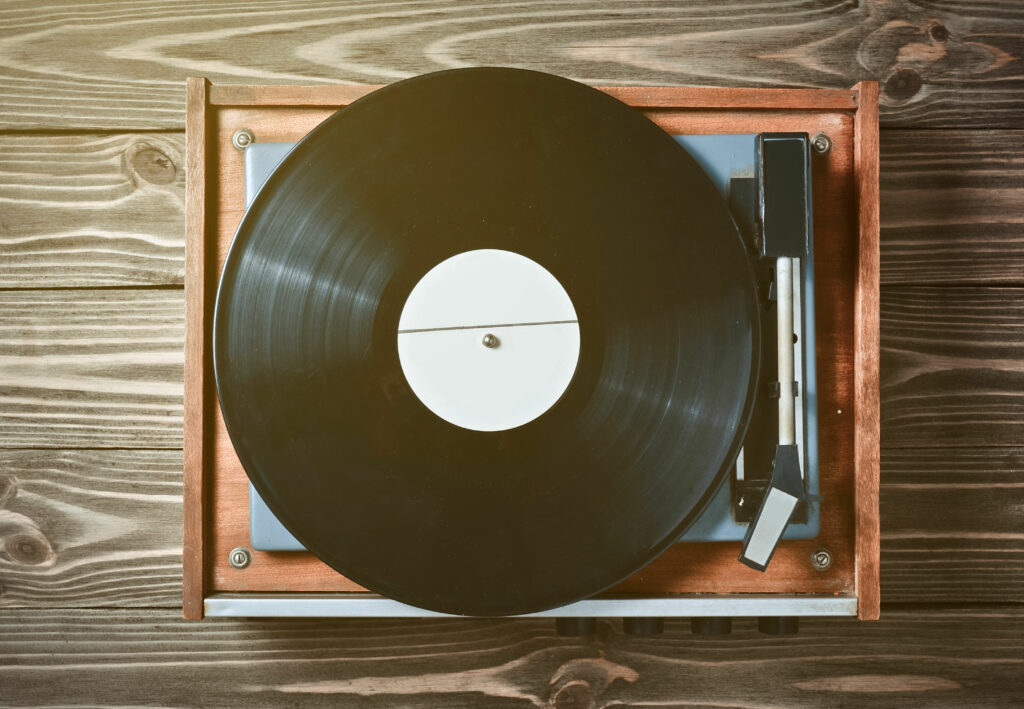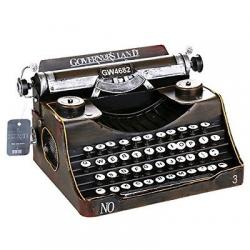Why Vinyl Elitists Need To Shut Up
Written by: Someone who wants to enjoy music without your opinion.
After being out of work for most of the pandemic, I applied to an easy job I knew I’d get, having prior barista experience coupled with a worker “shortage” ensured I could snag a job at a snotty little third wave café next to a dog park. These types of cafés in particular are humorously stereotyped to employ kids who graduated with a degree in the arts and wasn’t able to find a job after graduating– jaded thirty year olds with a vast arsenal of tattoos and piercings who pour cute hearts and flowers for customers they hate. Bad coffee generally tastes either sour or bitter, however the funny thing is that these cafés serve excellent coffee. However, their workers tend to be bitter failed artists or a new grad realizing their liberal arts degree was a huge waste of time and effort.
It’s literally a bunch of middle aged white dudes with tattoos and terrible hair who wear black from head to toe, sip cold brew all day and ask girls to name three songs by the band on her shirt while simultaneously expecting to be praised for masquerading as feminists.
A couple of my coworkers were truly insufferable– many of them were part of the “punk” scene, who, as you know, are absolutely insufferable and get turned on by the idea of gatekeeping “good music.” It’s literally a bunch of middle aged white dudes with tattoos and terrible hair who wear black from head to toe, sip cold brew all day and ask girls to name three songs by the band on her shirt while simultaneously expecting to be praised for masquerading as feminists.
At my café, we had an iPad and got to choose what music we were playing in the background. Now, I enjoy a good playlist. Unless I’m going through some sort of phase, I like to vary the selection of artists I listen to. Whenever I would ask to play a playlist, these pretentious fucks would balk at the thought of choosing a curated playlist on Spotify and seemed judgmental and confused, which I thought was strange. Playlists aren’t a feature on just about every music streaming service without reason. Nonetheless, one of my coworkers, would repeatedly just say that he’s fine with the playlist I selected, however “it’s just not the way [he] listen[s] to music”. After hearing him repeat that a couple times, I realized what this phrase was a dog whistle for— “I collect vinyl records.” You know, because they can only play one album at a time and can’t just shuffle their music. I nearly kicked myself for not understanding this coded language immediately considering their awkward judgment whenever I changed the music.
I won’t completely glaze over the cultural significance of vinyl records, even though it doesn’t concern the sound quality of the medium.
Later that week, the same coworker asked my manager to step off the floor so he wouldn’t miss out on a special release of a vinyl he wanted to order off the internet. My coworkers would always tell each other which album they just bought, as if it were the 1960’s and they had no other choice but to buy vinyls. I began to poke fun at them for it, and would sarcastically ask if they would be offended if I didn’t play an entire album whenever I changed the music. A few of them began to get defensive, claiming “but it sounds so much better!” as they always do. But upon further examination, do vinyls actually sound better than digital music? Do my insufferable coworkers have a point when they insist on buying these antiquated dusty ass discs? I decided to dig deeper because I didn’t want to make an ass of myself if I didn’t actually know what I was talking about.
There is a romantic, old timey element of dusting off a record before setting it on the player; similar to dusting off an old book at the library before reading it. However, this aspect alone doesn’t justify how annoying my coworkers are about their music preferences.
The answer? Well, it really depends. There’s a lot of different variables that change the answer, thus I’ll try to keep the explanation as succinct as possible. I’ll provide a tl;dr at the end if you’re too lazy to read through the boring technical shit.
I won’t completely glaze over the cultural significance of vinyl records, even though it doesn’t concern the sound quality of the medium.
Before vinyl records, there wasn’t really an established method of distributing music tracks to the masses. Consumers had to resort to listening to whatever was on the radio, see live music, or buy sheet music and learn to play those songs at home. But there wasn’t a way to allow individual listeners to choose the music they desired whenever they wished. Because of this, it is hard to ignore the historical significance of vinyl pressing, it was the first time people were buying the same recordings that they could listen to whenever they wanted, which caused the explosion of the audio industry. There is a romantic, old timey element of dusting off a record before setting it on the player; similar to dusting off an old book at the library before reading it. However, this aspect alone doesn’t justify how annoying my coworkers are about their music preferences.
Now, the boring stuff:
Back to the sound– an important factor of the audio quality goes back to how these formats actually work. Vinyl records are created after a recording has been made which is stored on a phonograph disc. Magnetic tape recordings are made by sound waves that are converted to an electric current, creating magnetized areas along a piece of tape via electromagnet.
Digitized recordings are made by sampling acoustic audio recordings, where the audio is then stored in binary code (1s and 0s) which represent audio signals at consistent time interval. During playback, digital audio is then reconverted to analog form before amplification and having a connection to a loudspeaker.
Pressing vinyl production works as follows: finished recordings are sent electronically to a lathe, etching into a piece of lacquer. The lacquer disc is subsequently coated with metal and essentially becomes a press, which allows the mass production of that specific record. Vinyl has some physical limits, specifically when low frequencies are played loudly, causing the needle to bounce outside that groove, which causes skipping. High frequencies require very tightly spaced grooves that the needle must be able to skirt around, when it is unable to keep up, it causes the record to “hiss” while being played.
The quality of digital recordings basically ends up on the sample rate and the depth of its bits. For example, if an audio track has a rate of 44.1kHz, it means that the sample plays at a rate of 44,100 times per second with 16 b its of depth per sample.
Vinyl has the ability to provide all audio frequencies within human hearing, however, the tighter the the circle–the less likely the needle is going to accurate skate along each groove. Listeners are expected to experience between 0.4 and 3% total harmonic distortion, whereas digital audio compressed files (DAC) will have an average of 0.0001%, and allow a larger spectrum of dynamic range than vinyl does–by ten times. This means that digital audio has the ability to produce much louder and softer sounds than vinyl can. Vinyl also can experience distortions due to dust, scratches and pressing irregularities. However, some argue that they like the sound of some imperfection when listening to music–rather than a flat audio file that provides the same sound each and every time.
One problem that vinyl does not have is that digital music has become increasingly louder over the years–whereas due to physical limitations vinyl are not susceptible to what is called “the loudness war” between different music labels and their releases. However, only snooty audio engineers will prefer vinyl because of this, I doubt most people are aware of this fact.
Some people feel a deeper connection to music when they listen to vinyls, and they enjoy artists making a profit off of record sales, as the music cannot be pirated unless you have a lot of weird, unnecessary equipment. It’s kind of like how pretentious “writers” enjoy using typewriters–the difference is only a personal appreciation of the medium’s historical significance.
What will make the biggest difference in sound quality during playback is the equipment the music is being played on. A shitty turntable with built in speakers won’t produce a higher quality sound; neither will the shitty speakers that came for free with your desktop.
But I guess my coworkers need something to feel good about, seeing as their art or music career didn’t go as they planned.
TL;DR: So unless my coworkers are listening to their music using extremely high quality audio equipment, they’re not going to get a better listening experience. I’m not sure if the salary of a barista in San Francisco allows for them to buy fancy audio equipment, so unless this is the case, their argument is more or less false. However, this argument also applies to digital music too–those ten dollar earbuds won’t provide a quality listening experience.
But I guess my coworkers need something to feel good about, seeing as their art or music career didn’t go as they planned. They can have their vinyls and their false sense of superiority for collecting overpriced discs that will eventually devour increasingly more space in their tiny 3000/month San Francisco apartment. I’d rather just get a better job so I can buy myself some nice Sennheiser headphones.










